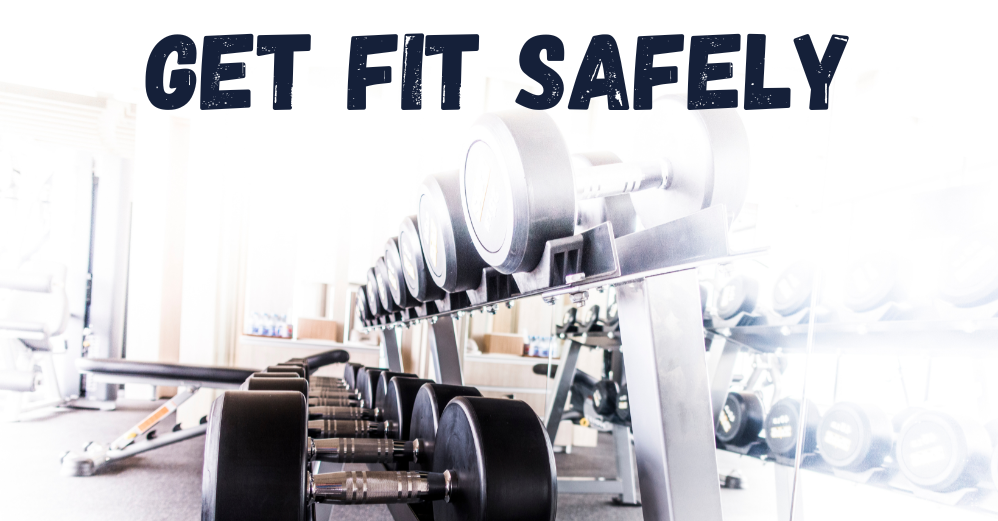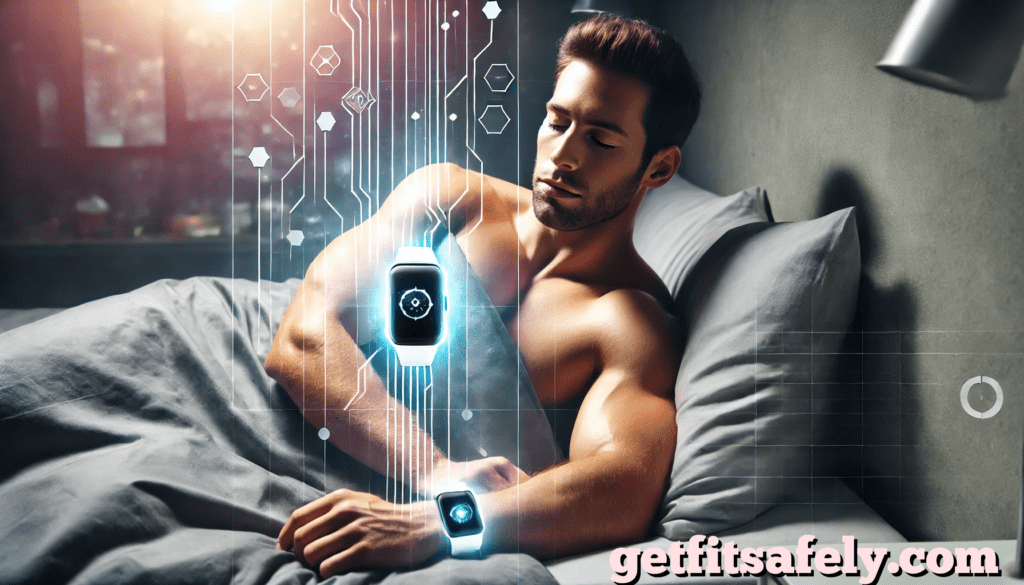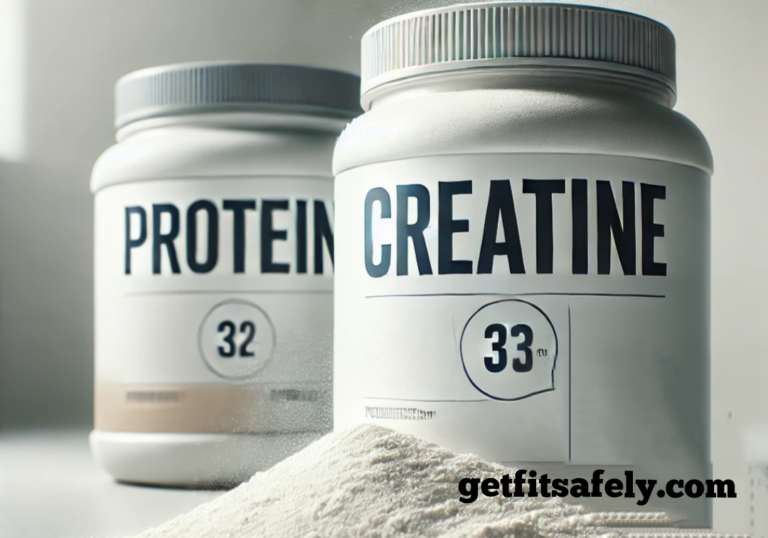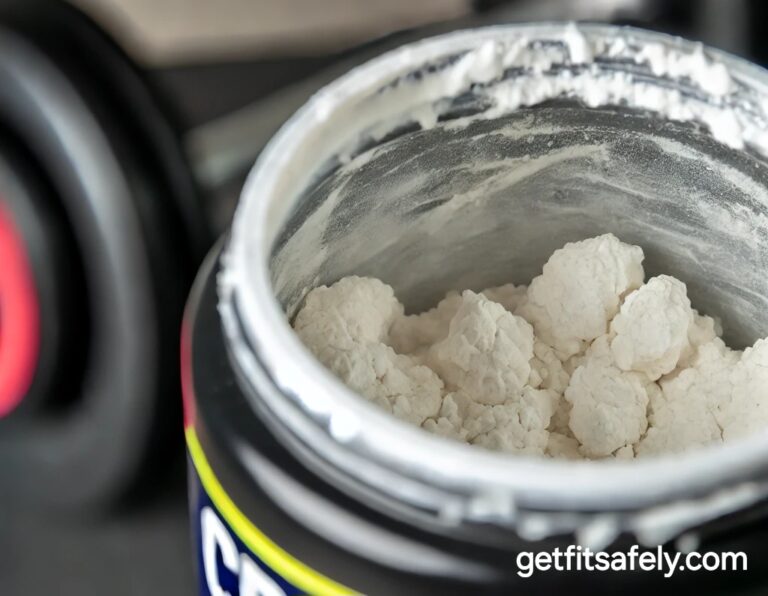Hey there, fellow dreamers and fitness enthusiasts!
Ever catch yourself wishing you could burn calories while binge-watching your favorite show or, better yet, while catching some Z’s?
Absolutely, I can relate!
Imagine waking up feeling like you just crushed a hardcore workout—all without leaving the comfort of your bed.
Sounds like a fantasy, right?
Well, grab your comfiest blanket and settle in.
We’re about to dive into the wild world of futuristic fitness tech—specifically, an AI-powered workout that could help you melt fat while you sleep.
Now, before you think I’ve lost my marbles, hear me out.
While this tech doesn’t exist yet, the possibilities are closer than you might think.
Dreaming of Effortless Fat Loss? You’re Not Alone!
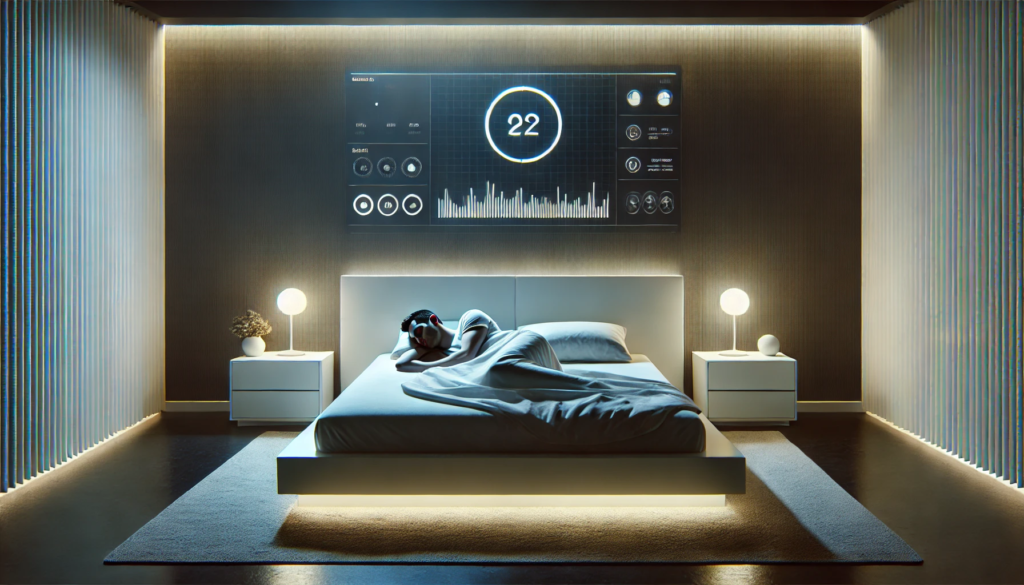
So, picture this: It’s 11 p.m., and instead of setting an early alarm for the gym, you slip on a sleek, comfy device—let’s call it the “DreamFit Band.”
You drift off to sleep, dreaming about that tropical vacation or winning the lottery.
Meanwhile, this nifty gadget is hard at work, subtly stimulating your muscles and boosting your metabolism.
You wake up feeling refreshed and, over time, noticeably fitter.
Sounds like science fiction, right?
Well, I’m always on the lookout for the next big thing in fitness.
Mostly because I love the idea of getting results with minimal effort—who doesn’t?
So, I couldn’t help but wonder: Could this actually become a reality?
The Science Behind the (Possible) Magic
Now, I’m no scientist, but let’s geek out for a second.
The concept revolves around something called neuromuscular electrical stimulation (NMES).
This technology uses electrical impulses to cause muscles to contract, potentially leading to muscle strengthening and increased metabolism.
Combine that with advanced AI algorithms that monitor your sleep patterns.
Theoretically, you’ve got a device that optimizes these stimulations during the best phases of your sleep cycle.
The AI ensures that the muscle contractions are timed perfectly so they don’t disrupt your sleep.
In essence, it’s like a personal trainer and sleep coach rolled into one, working while you snooze.
But Wait—Does This Tech Actually Exist?
Alright, time for a reality check.
As of now, this exact technology isn’t available on the market.
Trust me, I’ve scoured the internet high and low (mostly during my procrastination hours).
While there are devices that use NMES for muscle recovery, some also track sleep patterns.
However, none have combined these features to create a fat-burning sleep aid powered by AI.
But here’s the exciting part: With the rapid advancements in technology, especially in AI and health tech, it’s not entirely out of the realm of possibility.
Researchers are already exploring the potential of AI in personalizing fitness and health routines.
So, while we can’t buy a DreamFit Band today, who’s to say we won’t see something like it in the near future?
Why the Idea Is So Appealing
Let’s be honest—I, for one, would love to shed a few pounds without having to wake up at the crack of dawn for a jog.
The allure of passive fat loss taps into our desire for convenience in a busy world.
Between work, family, and trying to have a social life, finding time (and energy) for regular workouts can be tough.
An AI-powered device that helps burn fat during sleep could be a game-changer.
For those juggling countless responsibilities, it offers a way to prioritize health effortlessly.
The Science of Nighttime Metabolism and AI’s Potential Role
If you’re like me, the idea of something working while you’re fast asleep sounds like a dream come true.
But why does this concept even hold any weight? (Pun totally intended!)
Sleep is a big deal when it comes to our bodies and metabolism.
While we snooze, our bodies are doing a lot of “background processing,” like repairing muscles, balancing hormones, and yes, burning calories.
Researchers are diving into ways AI could theoretically optimize these natural processes.
Imagine a world where AI studies your body’s rhythms and learns your metabolic rate.
It suggests daily tweaks—like when to eat certain nutrients or which exercises trigger the most fat burn for you.
Though we aren’t quite there yet, it’s fascinating to think about the potential.
What Could AI-Powered Sleep Fitness Look Like?
Alright, let’s dive deeper into what a night-activated AI fitness tool might include.
Imagine lying down, popping on a sleek wearable, and it syncs with an AI app that’s been tracking your activity, diet, and even stress levels.
The AI could create a personalized “sleep fitness plan,” showing you the tiny tweaks that add up to big results over time.
It might offer insights like, “Tomorrow’s breakfast should have an extra dose of protein based on last night’s metabolism readings.”
Or perhaps it spots a trend—like you burn more calories when you add certain foods or routines into your day.
These insights could potentially guide you to burn those calories and keep your metabolism firing, even while you sleep!
Not Just Fat Burning: Building Better Recovery with AI
Let’s face it: A lot of fitness is about recovery, and a well-designed AI could help here, too.
You know how sometimes you push yourself in a workout, only to feel like a truck hit you the next day?
Imagine an AI tool that evaluates your recovery as you sleep, suggesting ways to tweak your diet, hydration, or even stretching routines to improve the recovery process.
It might offer tips like, “Add more B-vitamins” or “Tonight’s sleep focus is muscle recovery—aim for extra hydration.”
By optimizing recovery, you’re not just feeling better—you’re setting yourself up for more effective workouts, which in turn can lead to better fat-burning potential.
The Skeptic’s Corner: Is It Too Good to Be True?
Of course, it’s important to approach such ideas with a healthy dose of skepticism.
If and when this technology becomes available, there are several factors to consider:
Effectiveness
- Real Results vs. Hype: Will the device actually deliver noticeable fat loss, or will it be more of a minor boost?
- Individual Variability: How will factors like age, baseline fitness level, and sleep quality affect outcomes?
Safety
- Health Risks: Could electrical muscle stimulation during sleep have unintended side effects?
- Sleep Disruption: Even with AI optimization, is there a risk of interfering with the natural sleep cycle?
Ethical and Psychological Considerations
- Quick Fix Mentality: Does relying on such a device promote unhealthy attitudes toward fitness and weight loss?
- Accessibility: Will this technology be affordable, or will it widen the gap in health disparities?
Imagine a Day with an AI Sleep Fitness Trainer
Let’s have some fun and imagine a day with your “sleep trainer” AI.
You wake up to a morning report on your phone, giving you a breakdown of last night’s metabolic activity, hydration levels, and even mood predictions.
Maybe it says, “Last night, you burned an extra 200 calories during sleep, thanks to optimized protein intake and the workout schedule we set up.”
How motivating would that be to see every morning?
Throughout the day, this AI could sync with other devices, offering little reminders to stay on track.
An alert around lunchtime might suggest, “Go for high-fiber veggies today to support optimal digestion tonight.”
After a challenging workout, it could add, “Consider a bit more magnesium to aid muscle relaxation.”
This kind of hypothetical AI wouldn’t just be about sleep—it would turn your whole day into a strategic plan to reach your goals faster.
So, What’s Actually Available Right Now?
While the “sleep fitness AI” isn’t exactly out there yet, tech that uses some of these principles does exist.
For example:
- Sleep Trackers: Devices like the Fitbit, Whoop, and Oura Ring analyze sleep patterns, giving you insights into your sleep quality.
- Fitness Apps with AI: Apps like MyFitnessPal and Noom use AI to provide personalized diet and exercise recommendations.
- Muscle Stimulators: Products like PowerDot offer NMES technology for muscle recovery, though not specifically during sleep.
While none of these options currently offer a complete nighttime calorie-burning plan, they’re still valuable tools.
They’re perfect for anyone interested in optimizing their fitness.
The Real Path to Fitness: No Shortcuts, But Lots of Hope
The idea of an AI workout that melts fat during sleep sounds incredibly enticing.
However, it’s important to remember that, for now, it’s more concept than reality.
Effective weight loss and fitness typically require a combination of balanced nutrition, regular physical activity, and adequate rest.
But that’s not to say we shouldn’t be excited about the future!
Embracing the Present While Eyeing the Future
So, while we wait for the day when we can burn calories by simply dreaming, there are plenty of actionable steps we can take now.
Optimizing our sleep environment can lead to better rest and improved recovery:
- Dark, Quiet Room: Promote deep sleep by minimizing light and noise.
- Consistent Schedule: Go to bed and wake up at the same time daily to regulate your internal clock.
- Limit Screen Time: Easier said than done, I know. But reducing blue light exposure before bed can improve sleep quality.
RELATED:>>> Why Slow and Steady is the Best Approach to Weight Loss: 9 Reasons to Avoid Rushing Results
Final Thoughts: A Dream Worth Chasing?
The concept of an AI workout that helps melt fat while you sleep might sound like a far-off fantasy, but it’s rooted in the exciting advancements of today.
We shouldn’t count on sleep workouts replacing traditional fitness anytime soon.
But staying informed and open-minded about new tech can keep us motivated and inspired.
In the meantime, I’ll keep hitting the gym (occasionally), trying to eat my veggies (when pizza isn’t calling my name), and getting the best sleep I can.
And who knows?
Maybe one day, we’ll all be strapping on our DreamFit Bands and waking up a little fitter every morning.
Disclaimer: As of now, the AI sleep workout device mentioned doesn’t exist.
The ideas discussed are speculative and intended for entertainment and informative purposes.
Always consult healthcare professionals before trying new health and fitness routines.
Over to You
What do you think about the possibility of AI-powered sleep workouts?
Would you try a device like the DreamFit Band if it became available?
Share your thoughts, dreams, or skepticism in the comments below.
Let’s imagine the future of fitness together!
P.S. If you’re as intrigued by the intersection of AI and fitness as I am, stay tuned!
I’ll be keeping an eye on the latest developments and maybe, just maybe, we’ll get to test out some of these futuristic gadgets sooner than we think.

